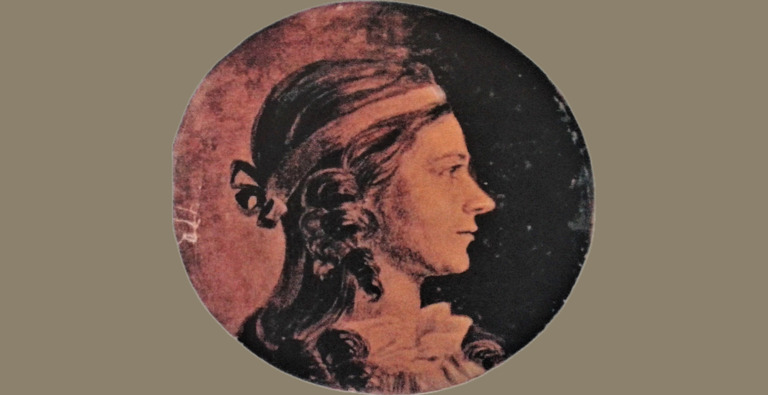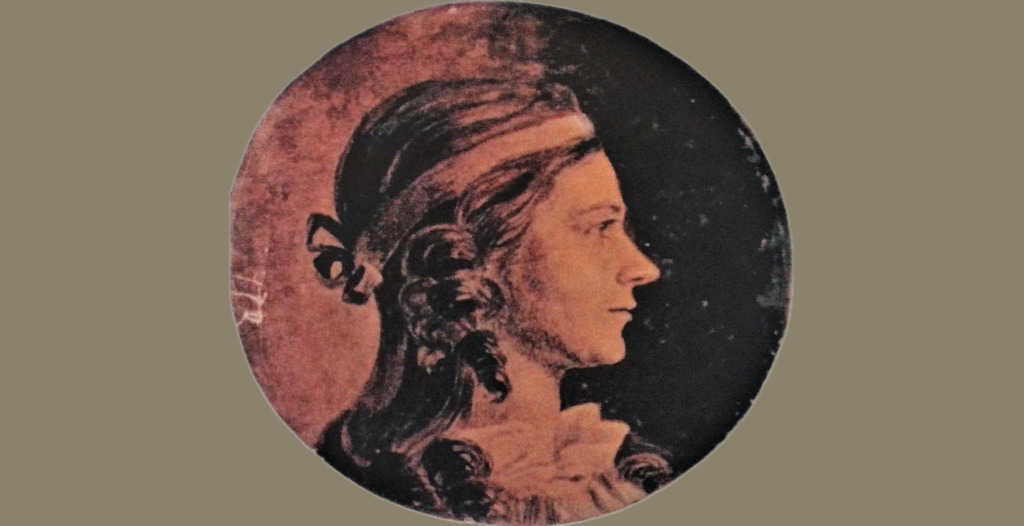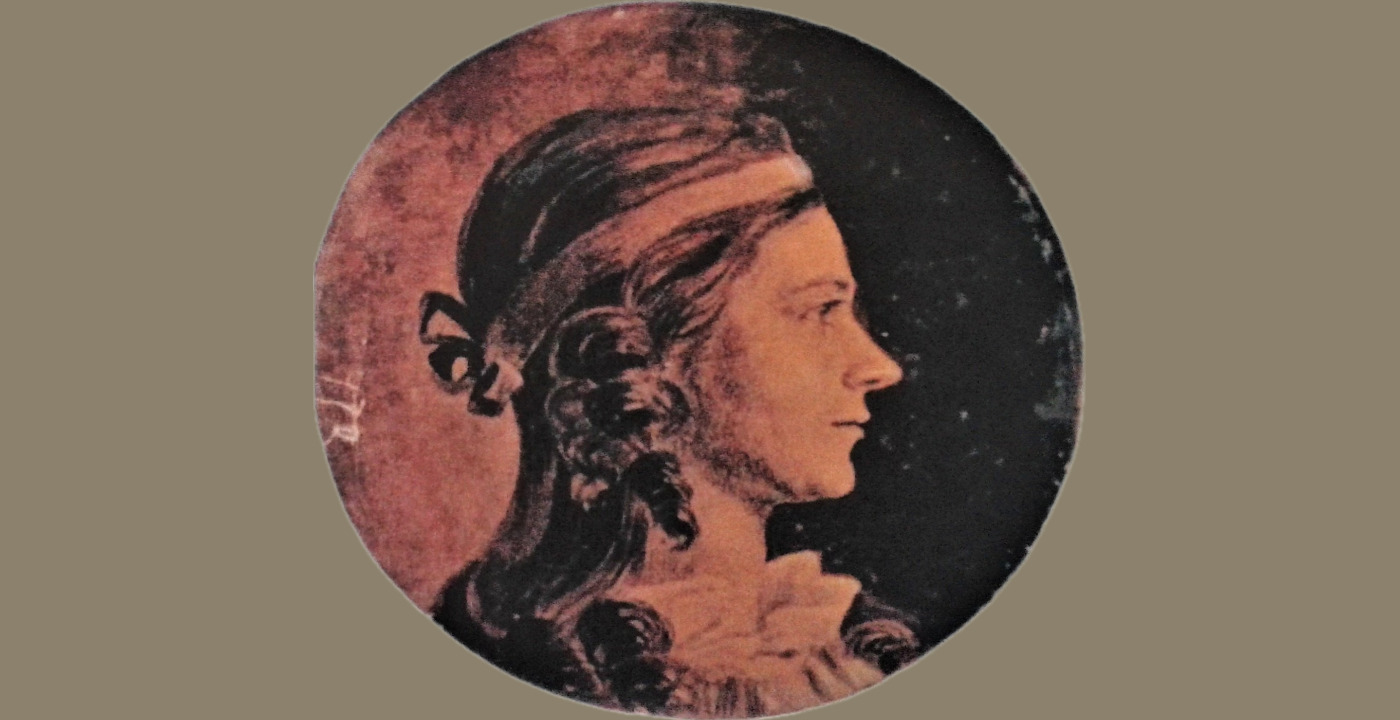Ann Batten Cristall’s family and friendships shaped her life and writing. Poetical sketches (1795) was Cristall’s only identified work. If she continued to write throughout the next half century, she either chose to publish her later works anonymously, pseudonymously, or did not publish what she wrote. The rediscovery of more information related to Cristall’s biography has the potential to lead researchers to additional sources and any so far unidentified works by her.
Cristall’s maternal uncle, Reverend Joseph Batten, was an Independent minister and published poet. Batten had written an elegy on the death of Thomas Vigurs in 1774, which was printed in Cornwall by the Falmouth bookseller Matthew Allison. Batten was appointed minister of the Independent chapel in Back Street, Southwark, London in 1786. At that time, he was a widower and a single parent. In London, his sister Elizabeth Cristall and her daughters likely helped to care for his family. Batten may have inspired or directly encouraged his niece Cristall to write verses.
By 1788, Cristall was acquainted with Mary Wollstonecraft. Ann’s brother, Joshua Cristall, made a choice at that time to pursue his ambition to be an artist, rather than go into business. Wollstonecraft urged him to consider the impact that his decisions might have on Cristall.
I know that you earnestly wish to be the friend and protector of your amiable sister and hope no inconsiderate act or thoughtless mode of conduct will add to her cares – for her comfort very much depends on you.
In 1790, Joshua Cristall accepted a position painting china at Thomas Turner’s porcelain factory in Shropshire. He travelled and sketched to develop designs.
Although Wollstonecraft had expressed concern for Cristall’s well-being, she did not seek her out during Joshua Cristall’s absence, noting that:
I have seldom seen your Sister since you left town I fear her situation is still very uncomfortable I wish she could obtain a little more strength of mind I am afraid she gives way to her feelings more than she ought to do.
The circumstances leading to this concern were not stated by Wollstonecraft. Joshua Cristall’s departure to work for Turner coincided with his uncle’s marriage. Both these developments may have had an impact on Cristall’s everyday life and former family relationships. Two years later, her uncle returned to live in Cornwall with his new wife and family. At the same time, Elizabeth Cristall inherited a legacy and may have used it to enable her children to pursue creative vocations.
By the early 1790s, as well as writing verses, Cristall had established a social life in radical and literary London which included George Dyer. Like her uncle, Dyer was a Baptist minister and a poet. Both men may have acted as mentors of Cristall’s creative writing. In the preface to Poetical sketches, Cristall revealed her admiration for the ‘poetic energy’ of Robert Burns and the ‘simple elegance’ of some of Dyer’s verses. The concluding poem of Cristall’s Poetical sketches was addressed directly to Dyer, urging that ‘Nature and Truth your steps must always guide.'
Cristall’s Poetical sketches was a substantial collection of twenty-four verses, some of which contained several parts or songs. The publication and distribution of Poetical sketches was advertised in newspapers; it received attention and was reviewed in England and America. Three of Cristall’s verses were published in the Gentleman’s Magazine in April and October 1795. Other magazines republished one of the verses with their reviews which initially welcomed a new poetic voice perceived as having ‘genius, and warmth of imagination’ or ‘genius, sentiment, and pathos’, alongside critical concerns about the occasional irregularities of form, which made her poetry more directly expressive of feeling. Opinion was divided on the fact that Cristall animated, personified, and emoted elements of the natural world. This led the Critical Review to define Cristall positively as a ‘poetess of nature’; while a later critic in the Monthly review prosaically itemised several instances of unnaturalistic descriptions or mixed metaphor.
Following publication of the Poetical sketches, Mary Hays and Dyer provided further introductions for Cristall. In April 1796, Mary Hays held a tea party attended by William Blake and others. Cristall was noted in William Godwin’s diary, in letters written by Wollstonecraft, and by Dyer as present at social gatherings in London up to and including 1797. After Robert Southey met Cristall that year, he wrote to his friend, the Bristol bookseller Joseph Cottle:
But Miss Cristall have you seen her poems? - a fine, artless, sensible girl. Now Cottle that word sensible must not be construed in its dictionary acceptation. Ask a Frenchman what it means and he will understand it though perhaps no circumlocations explain its French meaning. Her heart is active. She loves Poetry – she loves retirement – she loves the Country. Her verses are very incorrect and the Literary Circle say she has no genius but she has Genius, Joseph Cottle! Or there is no truth in physiognomy.
Southey, like Wollstonecraft, noticed the emotional impact of Cristall’s presence. He acknowledged her published verses had merit despite, or because of, their ‘incorrect’ elements. He then communicated to Cottle that his responses to meeting Cristall did not result from her ‘physiognomy’ or facial features.
Dyer considered Cristall had ‘a very fine talent for poetry,’ and urged Hays to collaborate with her in writing ‘an excellent poetical novel.’ This encouragement to write a novel in verse was not taken up, jointly or separately, by Cristall or Hays. Dyer informed others that Cristall would be writing new work for publication in 1799, which did not appear. Nonetheless, it is likely that other works were written by Cristall, whether or not they were published or are now extant.
Verses Written In The Spring,
Poetical Sketches (1795)
pp. 59-61
FROM yon fair hill, whose woody crest
The mantling hand of spring has dress'd,
Where gales imbibe the May-perfume,
And strew the blushing almond's bloom,
I view the verdant plains below,
And lucid streams which gently flow;
The opening foliage, drench'd with showers,
Weeps o'er the odorous vernal flowers;
And while before my temper'd eye
From glancing clouds swift shadows fly,
While nature seems serene and bless'd,
And inward concord tunes my breast,
I sigh for those by fortune cross'd,
Whose souls to Nature's charms are lost.
Whether by love of wealth betray'd,
Absorb'd in all the arts of trade,
Or deep engross'd in mighty schemes,
Toss'd in ambition's empty dreams,
Or proud amid the learned schools,
Stiffen'd by dull pedantic rules,
Or those who ne'er from forms depart,
The slaves of fashion and of art.
O! lost to bliss! the pregnant air,
The rising sun, the ripening year,
The embrios that on every bush
'Midst the wild notes of songsters blush;
The violet's scent, the varying hues
Which morn's light ray strikes 'mid the dews,
To them are lost -- Involv'd in care,
They cannot feel, they cannot share.
I grieve, when round I cast my eyes,
And feel a thousand pleasures rise,
That this fair earth, by Heaven bestow'd,
(Which human fury stains with blood)
Should teem with joys which reach the heart,
And man be thus absorb'd in art.
Dr. Charlotte MacKenzie is an independent researcher and former UK university senior lecturer in history with many publications since 1983.


